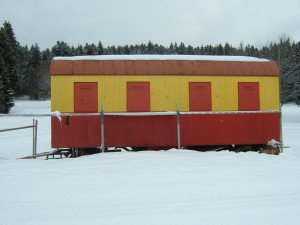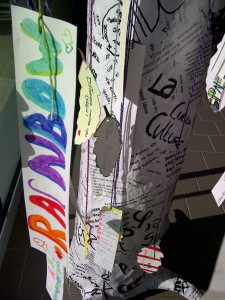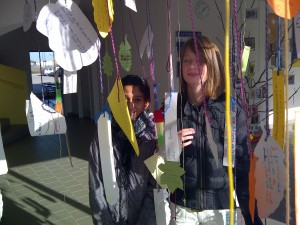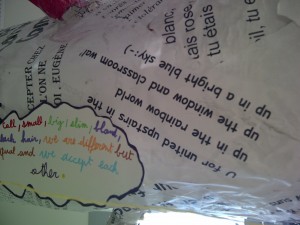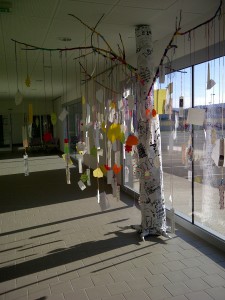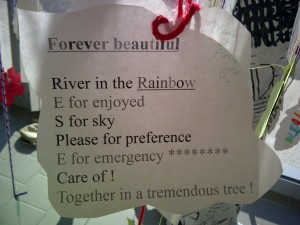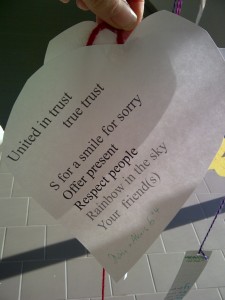Home » teenagers (Page 2)
Category Archives: teenagers
Looking for Eric by Ken Loach -under construction-Collège et cinéma
1)Underline 5 similarities between Ken Loach’s life and work and Gustave Courbet’ s life and work.
2)Choose 5 sentences or more and ask as many questions as you can.
Gustave Courbet was born in La Vallée de la Loue (Loue Valley) in Franche-Comté on June 10th 1819 .He studied in Besançon and Paris. His family wanted him to study law but he preferred drawing and painting. He spent a lot of his time in museums copying a huge amount of paintings and eventually stopped studying law. He was politically involved in La Commune and was attributed the destruction of La Colonne Vandôme.
He liked saying “Courbet sans les courbettes”.It means that he was a very straightforward person with a lot of personality- at times, too much!He wrote many interesting pamphlets and letters to explain his viewpoints about painting. He didn’t want to work for the Académie des Beaux-Arts and refused any type of promotion linked to the government because he wanted to be a free “thinker”.
He had a son who died when he was 25 years old .
He was condemned by the French government and put in prison. He died in exile in Switzerland on December 31st 1877. The debate about his responsibility or the absence of responsibility in the destruction of the Column is still going on.
His painting has the realism of every day life:
-people at work
-people coming back from a burial
-ordinary people at a burial
-hunting scenes with realistic details
-ordinary people by the riverside
-nudes with realistic details
-portraits and landscapes of his region
The common key-word and denominator between the two people is r e a l i s m .
Ken Loach was born on June 17th 1936. He started studying law and eventually became a comedian. He is interested in shooting films and documentaries about daily life.He becomes the reference for “docudrama”, a mixture of fiction and documentaries.
He wants to show the difficulties of people in today’s world. The words which best sum up his work are= dark and gloomy, depressive and depressed, depression, gloominess and darkness.
He usually resorts to ordinary people rather than real actors.
He likes shooting films about the working-classes.
Kes (1969) is a film about a young boy who trains a kestrel in an ordinary working-class family with very ordinary people.
-cinema as a tool for understanding our world
-cinema should inform, educate and high light our human condition
-cinema should stress important elements in people’s daily life=
their problems in their jobs and their family relationships.
-cinema should serve politics, ethics and economy more than entertainment.
– “Humour is essential to our humanity”. “It is a question of survival.”
– Football is part and parcel of social life in working class families
Regions shot by the artist:
Sheffield, Manchester-Liverpool , Glasgow.
http://www.visitengland.fr/destinations/find/yorkshire/dg.aspx
L’enfant sauvage The wild child by François Truffaut
[youtube]http://www.youtube.com/watch?v=yddJBd6D2lo[/youtube]
The wild child
What can he do?
__________________________________________
What can’t he do?
__________________________________________
What does he like?
__________________________________________
What doesn’t he like?
________________________________________________
He can swim .
He can’t swim.
He can walk.
He can’t walk.
He can run.
He can’t run.
He can’t ride a bicycle.
He can read.
He can’t read.
He can eat with a fork and a knife.
He can’t eat with a fork.
He likes eating potatoes.
He also likes eating fruit and vegetables.
He can get dressed.
He can’t get dressed.
He likes wearing clothes.
He doesn’t like wearing clothes.
He likes the company of Madame Guérin.
He doesn’t like the company of Me Guérin.
Your opinion about this great film:
It is funny when he knocks at the windows. He is funny when he is in the wheelbarrow. The end is a happy end for Victor.”
Mélanie: “I liked the film a lot. I enjoyed the film because there are monologues but no suspense.”
“Estelle loved the film the wild child because he hasn’t got a family.”
“Benjamin loves the film the wild child. It is very sad and inspiring.”
Michaël: ” I liked the film a lot because it is funny !”
Alexandre: ” I liked the film but I didn’t like Victor’s fits.”
Hasan likes the film but thinks that the child is strange.
Nathan: ” I like the movie The wild child.
He likes drinking water in the river the forest,
he likes running and animals but
Victor doesn’t like school !
I like when Victor is in the wheelbarrow because it’s funny. I think it’s a great movie.”
Cria Cuervos by Carlos Saura 3°7
Thursday, November 17th (seventeenth)
Cria Cuervos by Carlos Saura
-
What is it about? (De quoi ça parle? Quel est le sujet?
-
-What do you think about the film? What is your viewpoint?
It is about a little girl who is acting very strangely.
To act strangely= agir de manière étrange
-
She thinks about death.
-
She regularly thinkS about death : l’adverbe de fréquence se place avant le verbe
-
She asks Rosana to show her breasts.
-
She says she doesn’t want to wear a bra.
To show= montrer
death= la mort
to think about= penser à
to ask= demander
breasts= seins
to want to= vouloir
to wear = porter ( vêtements)
prétérit
T. liked the music more than the film. ( plus la musique que le film)
F. liked the burial.(l’enterrement)
I liked the passage when she discovers her father.
To discover= découvrir
K. liked the music as well (aussi).
T. liked the passage when the father dies.
He liked it because it is strange and scary!
C. liked the film but didn’t like the little girl who is acting in a strange way.
Cl.‘s viewpoint= le point de vue de Clémentine
She didn’t like the film because there is no action.
L. didn’t like the song.
She thinks that the little girl acts very well but is frightening.
Frightening= qui fait peur
Laura‘s viewpoint and Cédric‘s viewpoint are different.
Ici on utilise le cas possessif dit encore cas génitif.
Océane didn’t like the film because it was in Spanish.
It is too sad.
